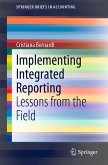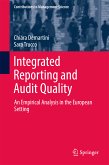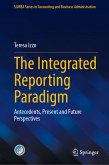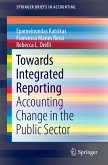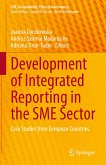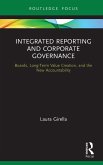This book, structured in two parts, gives a 360-degree view on integrated thinking, the foundation of integrated reporting, a rising trend in corporate reporting practice. This topic is particularly interesting in the context of new regulatory landscape, such as the Corporate Sustainability Reporting Directive (CSRD) in the EU (shaped by EFRAG's developments), alongside the IFRS Foundation's efforts towards global sustainability standards, both of which are shaping contemporary debates on sustainable value creation. The first part builds a framework for integrated thinking in a multidisciplinary perspective while the second part revises the framework in the light of practices, by bridging the gap with research findings in this field to date. The book concludes with the current shift of paradigm, and the need to address managerial questions in their complexity, building on knowledge across different specialized disciplines. The book will be of specific interest to accounting and finance teams and professional accounting bodies alongside those teaching or doing research within the fields of finance and accounting.
Sabrina Roszak specializes in finance and accounting at SKEMA Business School, with more than 13 years of business experience with both consultancy firms and large companies. She is the Associate Dean of the Academy Digitalization. Her research interests focus on corporate reporting with a particular interest in integrated reporting.
Raluca Sandu is an expert in accounting and performance management at SKEMA Business School where she also serves as the Dean of Faculty. She is co-chairing the Accounting History thematic group of the French-speaking Accounting Association, and is a member of various professional and academic associations in accounting. Her main research interests are in geopolitics of accounting.
Dieser Download kann aus rechtlichen Gründen nur mit Rechnungsadresse in A, B, BG, CY, CZ, D, DK, EW, E, FIN, F, GR, HR, H, IRL, I, LT, L, LR, M, NL, PL, P, R, S, SLO, SK ausgeliefert werden.



